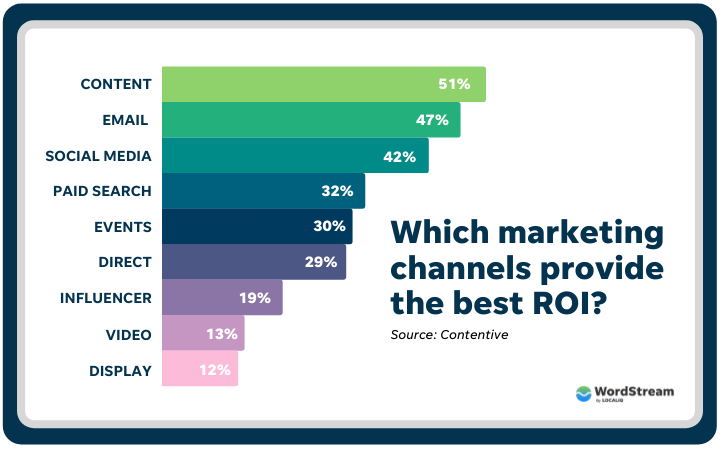09th Jan 2018 – 
And as I was having this realization—I noticed my wife looking over at me. Or more so, she was looking at me, looking at my phone, on a Friday night.
And that’s what I’d become—a bottleneck. A micromanager. I’d hired mini-me’s who were good in one very specific corner—at sales, or at development, or at support. But the second they needed to branch out or make bigger decisions—it all came down to me.

- Boss, can I get access to the corporate credit card. I need to start tracking emails, which means buying Yesware. I’ll get you the Lastpass login.
- Chief…I gave the customer a refund. When he switched plans, something went wrong, and we really needed to make that right.
- Dennis, I really need someone to help out with a banner design for next week. Can I add a project to Upwork?
So we hired Morgan–who became our “Holacracy Bootstrapper.” The job, at first, was just to figure out how holacracy works, how it could work for our remote team, and how we would go about getting started. I trusted her with the massive task of integrating Holacracy into our organization—and we began to see the company transform. Now, we trust every team member to be their own “boss,” survey what needs to be done to meet our goals, and to move themselves, and Convert, to the next level.
The kind of freedom where you can pursue something interesting. Where you can evolve. Where you’re not limited by the emotional or logistical barriers of the 9 to 5. Or the job description you were hired for, or the cubicle, or the old school ways of thinking about work.
And as we looked at the team, we realized—it was time to move away from low-cost freelancers, training manuals, limiting job descriptions, and the “do as I say” mindset. We had built a company that was limited to the knowledge of the founders. Little to no new ideas came to us from the team.
Holacracy found us at the right point. I was tired of micromanaging. As founders, Claudiu and I realized we were happy with our monthly salaries.
With salaries rising, and autonomy growing—something magic started happening. Little by little, I moved away from most operational tasks. In September, I signed off on two team members I never saw, met, or interviewed. I could trust their future colleagues to make the right choice.
I don’t want systems to run my company. I don’t want to pretend I’m the smartest guy in the room.
So, from this point on, we decided to…
To get where I had gotten—I had failed a lot. I’d learned a lot, too. From picking tomatoes at 4 am, to burning a year’s salary in savings to launch a tech startup. Throughout it all, I had come to believe that there were many decent bosses. But few of them were coaches.
You might know this feeling.
Now, as the company made more money, the team made more money. As the founders, we’d realized we no longer had to worry about things that used to keep us up at night: rent, insurance, seeing our families, or saving something for the future. We didn’t want anyone else on the team to have those concerns either.
The bad bosses were the ones that taught me to see the requests coming in on a Friday night as a red flag. They were a sign that I was on my way to becoming a bad boss.
My “lose sleep over it” worries used to be: traveling long distances to see my daughter, and offering health care and a living to the six people I support. There were several others—but they all revolved around my roles outside of work: as a father, husband, brother, and son.
And I didn’t have a single idea as to how.
And through that act of transparency—we found the common threads, and we set up a plan to fill the “worry” gaps with revenue growth. It’s a journey we’re still on today.
If that’s what I valued for my kids, and valued for my family—why on earth was I still managing my employees with hourly rates, Upwork screen records, and instruction manuals?
“Holacracy as the way out of hierarchy” came my way at the same moment I was learning about unschooling—or, trusting my children with the freedom to learn however they learn best.
Thanks to Facebook algorithms, my feed is loaded with Ted Talks. A couple clicks, a few video watches, and an occasional page like—and I can no longer avoid the name, Brian Robertson.
When TED-talks don’t suck
Those were the good bosses.
I tried to build a 4-Hour Work Week company—a company based on systems and outsourcing.
I had to quit my addiction to managing every detail of my company—if I didn’t want to mismanage what mattered in my personal life.
But it’s not for me.
It’s Friday evening. I should be just about logging off for the day.
Throw away the instructions manuals and double the pay
And, within 20 minutes—three requests come in over Slack, Asana, and Email:
The kind of work I loved to do was the type that pushed me closer to my personal goals—where I was learning the skills I needed to build my own company. I was lucky enough to have bosses that treated me like a partner. Where we shared knowledge, and trust, and, for 4-5 years, we mutually invested in a shared journey.
But I realized, if you really want to grow a company—these questions are a sign of a bottleneck.
- Set a revenue goal where each new dollar was divided equally throughout the team.
Fast-forward through the dread and onto a more positive bit of self-reflection.
We decided we liked the idea of Holacracy. We just didn’t fully understand what it was.
So now, I’ll get back to my other job—putting my 3.5 year old to bed. It’s 2 pm and he really needs his nap. Just like his dad.
I’d already gone through one divorce.
- Holacracy. Freedom with structure. How do we do it?
I have a love/hate relationship with TED-talks. But let’s discuss what they do well…they inspire. They motivate you. They have you (intellectually speaking) eating out of the palm of the presenter’s hand.
I was talking to my cofounder Claudiu, and we realized that there is something that sucks a lot more than being the boss.
- Find the future entrepreneurs (and let the “employees” go).
These were things I shared with my team. And they shared their stories back to me.
But, most of our core, full-time team members were fast to embrace the trust, and reinvent their jobs.
Inevitably, some team members couldn’t step away from the manuals. And we had to let go of a few who weren’t quite up for the transition.
Now, any manager’s inbox can look like this. You have a handful of people who rely on you for decisions.
Convert is thriving. It’s the company I wished I worked at 25. It’s a pleasure to motivate people, help my colleagues when they’re stuck, and little by little, dismantle the “bad boss” within me.
With shared failures, humblebrags, and the courage to be assertive—we are a building a company where team members are happy. Where their needs come first. And that’s the kind of company that our customers are happy to work with.
Make no mistake, there are still things I’m in control of. But I don’t sign off on trial email flows. I don’t sit in on demos. I trust the Customer Happiness team when they refund a customer account.
The company is run from the outside inward. My colleagues who talk to the customers, know the customers well. When they say they need an integration—we build an integration. When they buy tools, I trust they will use them.
My life back!
I’ve reached an age where I’d much rather like to share what I’ve learned. Where I hope to see my colleagues as people that have their own dreams. And where I’ll try to help them grow—giving them the freedom to change, swap roles, or leave and become their own entrepreneurs.
And they all taught me to work towards personal freedom.
Being the employee of a bad boss.
Which means I don’t have to sign off on a 19.95 Yesware subscription on a Friday night.
Roles, and the people who fill them have a budget. Every person has a credit card on Emburse—with limits that correspond to their role. Whether you’re in Madrid, Bangladesh, Chicago, or Cancun—we can trust you to do the right thing.
And not the Facebook Ad Life Coach “Buy My Personal Freedom Starter Kit for 9” sort of freedom.
And Claudiu and I thought this was something we should try.



